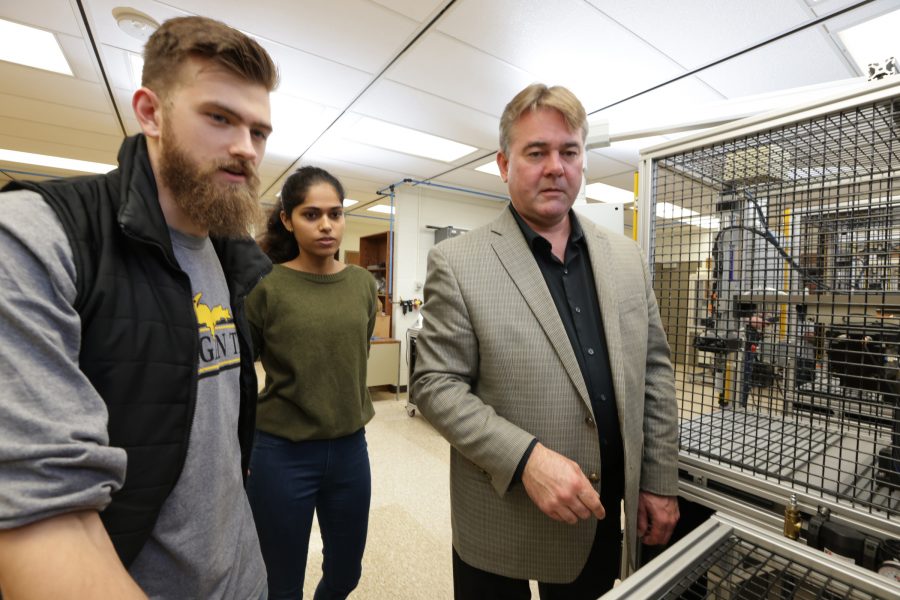Aleksandr Sergeyev, a professor in the Applied Computing (AC) department, is the principal investigator (PI) on a project that has received a $999,930 research and development grant from the National Science Foundation.
The project is titled, “Beginnings Track: Experiential Learning for the Mechatronics Workforce in the Upper Peninsula and Northern Michigan.”
Vinh Nguyen (ME-EM), David Labyak (MMET), Paniz Hazaveh (AC), and Linda Wanless (CTL) are co-PIs on this three-year project.
Project Abstract
View grant details on the NSF website.
Mechatronics is an emerging field that focuses on the development and practice of automation for industrial applications. A diverse workforce must be prepared to meet the growing job demand for Mechatronics employees. However, Mechatronics requires highly experiential workforce development programs to provide the professional and technical skills that are readily transferrable to the industry. Such programs are lacking, and therefore the existing workforce cannot meet the current and future demand.
Representing a collaborative partnership among Michigan Technological University, Gogebic Community College, West Shore Community College, eight industrial partners, and three nonprofit organizations, this project aims to provide accessible and comprehensive experiential learning opportunities in Mechatronics to promote a diverse workforce for readily participating in the US workforce. The industrial regional economy of the Upper Peninsula and Northern Michigan are expected to benefit from the skilled workers facilitated by this program.
This project will prepare a diverse cohort of participants for the five pillars of Mechatronics: robotics, mechanics, electronics, cybersecurity, and artificial intelligence. Participants in this project will partake in 1) an online Mechatronics Education Portal with foundational knowledge, 2) hands-on experiential Mechatronics Practice activities that link theoretical knowledge with practical implementation, and 3) a Mechatronics Industry Pathways rotation to provide participants with career outlooks in Mechatronics in industrial settings.
Professional development activities will be conducted to prepare participants for their career and expand their network with industry collaborators. Furthermore, this project will foster a community among cohorts through professional mentoring and community-building activities to promote a sense of belonging. The development of this curriculum will be undertaken in coordination with industry collaborators and regional organizations with dissemination for other educational programs nationwide. This project aligns well with the goals of the ExLENT Program, supported by the NSF TIP and EDU Directorates, as it seeks to support experiential learning opportunities for individuals from diverse professional and educational backgrounds to increase their interest in, and their access to, career pathways in emerging technology fields.
